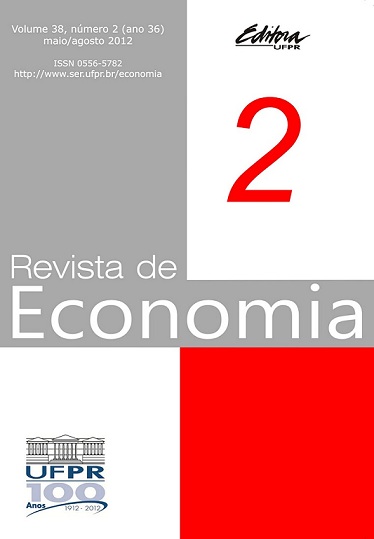Um modelo sócio-econômico para análise dos votos do partido verde nos municípios paranaenses na eleição presidencial de 2010
DOI:
https://doi.org/10.5380/re.v38i2.29904Palavras-chave:
Movimento Ambiental, Voto Verde, Voto Econômico.Resumo
Este artigo analisa o desempenho do Partido Verde nas eleições presidenciais de 2010 nos municípios paranaenses em função de variáveis sócioeconômicas. O modelo estimado mostra que o PV apresenta melhor desempenhoem termos de participação relativa nos votos em municípios com maior renda, grau de urbanização e número de estudantes. Por outro lado, nos municípios com maior participação de gastos em saúde e educação e maior número de eleitores o desempenho é inversamente proporcional.Abstract: This paper analyses the Green Party performance in the 2010 presidential election in the cities of Paraná on the basis of socio-economic variables. The estimated model shows that PV performs better in terms of relative share ofvotes in cities with higher income, degree of urbanization, and number of students. On the other hand, in cities with higher share of spending on health and education, and a greater number of voters, the performance is inversely proportional.
Publicado
Como Citar
Edição
Seção
Licença
Ao submeter um artigo, os autores concordam com os seguintes termos:
1. Autores mantêm os direitos autorais e concedem à revista o direito de primeira publicação, com o trabalho simultaneamente licenciado sob a licença Creative Commons (CC BY), que permite o compartilhamento do trabalho com reconhecimento da autoria e publicação inicial nesta revista.
2. Autores têm autorização para assumir contratos adicionais separadamente, para distribuição não-exclusiva da versão do trabalho publicada nesta revista (ex.: publicar em repositório institucional ou como capítulo de livro), com reconhecimento de autoria e publicação inicial nesta revista.




